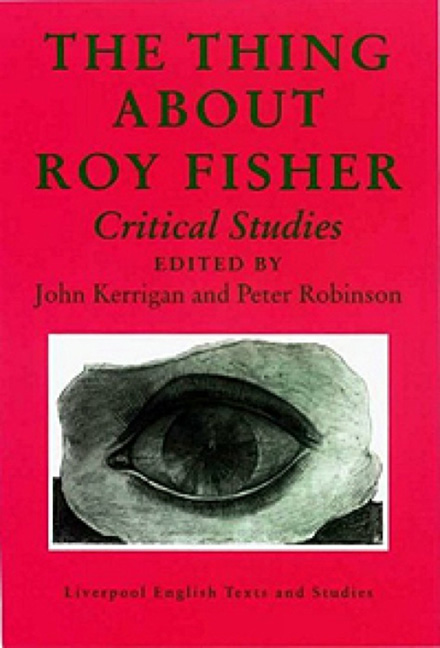Book contents
- Frontmatter
- Contents
- Notes on Contributors
- Acknowledgements
- Abbreviations
- Introduction
- 1 Roy Fisher on Location
- 2 ‘Menacing Works in my Isolation’: Early Pieces
- 3 TheWork of a Left-Handed Man
- 4 Osmotic Investigations and Mutant Poems: An Americanist Poetic
- 5 ‘Making Forms with Remarks’: The Prose
- 6 Cutting-Edge Poetics: Roy Fisher's ‘Language Book’
- 7 A Burning Monochrome: Fisher's Block
- 8 ‘The Secret Laugh of the World’
- 9 ‘Exhibiting Unpreparedness’: Self, World, and Poetry
- 10 ‘Coming into their Own’: Roy Fisher and John Cowper Powys
- 11 A Furnace and the Life of the Dead
- 12 Last Things
- Roy Fisher: A Bibliography
- Indexes
8 - ‘The Secret Laugh of the World’
- Frontmatter
- Contents
- Notes on Contributors
- Acknowledgements
- Abbreviations
- Introduction
- 1 Roy Fisher on Location
- 2 ‘Menacing Works in my Isolation’: Early Pieces
- 3 TheWork of a Left-Handed Man
- 4 Osmotic Investigations and Mutant Poems: An Americanist Poetic
- 5 ‘Making Forms with Remarks’: The Prose
- 6 Cutting-Edge Poetics: Roy Fisher's ‘Language Book’
- 7 A Burning Monochrome: Fisher's Block
- 8 ‘The Secret Laugh of the World’
- 9 ‘Exhibiting Unpreparedness’: Self, World, and Poetry
- 10 ‘Coming into their Own’: Roy Fisher and John Cowper Powys
- 11 A Furnace and the Life of the Dead
- 12 Last Things
- Roy Fisher: A Bibliography
- Indexes
Summary
Roy Fisher is not amused: ‘I know that if I hadn't got a handful of burlesques and a rather smaller handful of topographical poems with beginnings, middles and ends—discrete entities—I wouldn't have any profile at all. In my sort of gang I'm the odd one who's been published by capitalist publishers.’ Fisher's words here are both touching and rather touchy, from the one pathetic ‘handful’ that even as he speaks slips though his fingers into the other ‘rather smaller handful’, through the hand-washing separation of ‘discrete entities’, to the gratuitous gesture towards the publishers, the word ‘capitalist’ wielded as a term of abuse rather than as description. The sentences amount to the self-mocking ‘odd one’ in weary affirmation, both modest and belligerent, of group loyalty, of ‘my sort of gang’; a hard-boiled phrase with a curiously soft centre, ‘sort of’ deliciously imprecise, classifying yet failing to define, a phrase somehow—sort of—appropriate to Fisher's own uncertain procedures.
Not that all this hand-wringing has deterred Fisher's ‘capitalist’ publishers (the charitable-status Oxford University Press and the avowedly counter-cultural Bloodaxe Books). His 1996 Bloodaxe collection of new and selected poems, The Dow Low Drop, according to the book's jacket blurb, ‘celebrates forty years of Roy Fisher's wonderfully witty and anarchic poetry … The reputation he gained in the 60s and 70s as a difficult poet is wrong: this book shows that he is one of the funniest, most open and liberating writers of his generation.’ The intriguing suggestion here—the pitch—is far from the usual rallying cry that Fisher's work has been neglected, but rather that Fisher has been taken too seriously; the implication being, of course, that his poetry needs to be, to borrow a phrase from Philip Larkin, ‘rescued from among our duties and restored to our pleasures’. Despite the presumably dubious—‘capitalist’—motives behind this attempt at remodelling, or repackaging, some restoration work on Fisher's reputation is clearly necessary.
Fisher's poetry, when it has not merely been valued negatively for what it does not do and what it is not, has often been seen as purveying a content susceptible to summary and paraphrase, even by those critics who are committed to resisting totalizing systems of explanation.
- Type
- Chapter
- Information
- The Thing About Roy FisherCritical Studies, pp. 193 - 208Publisher: Liverpool University PressPrint publication year: 2000



